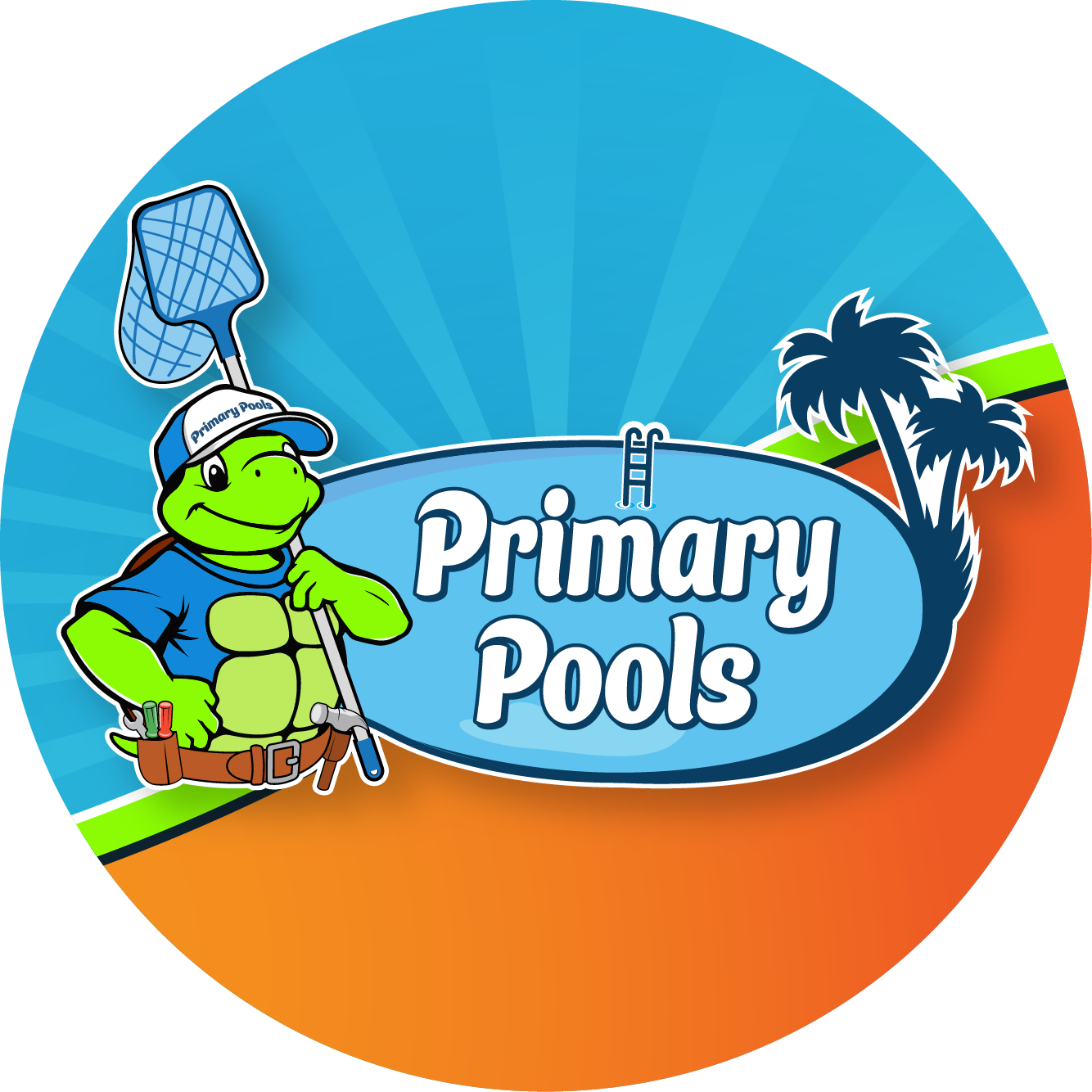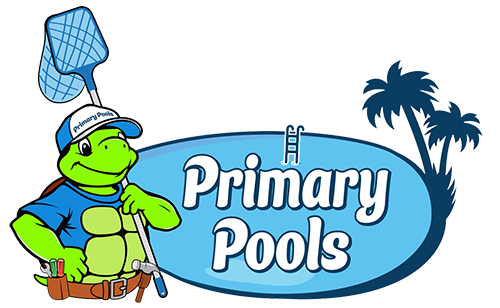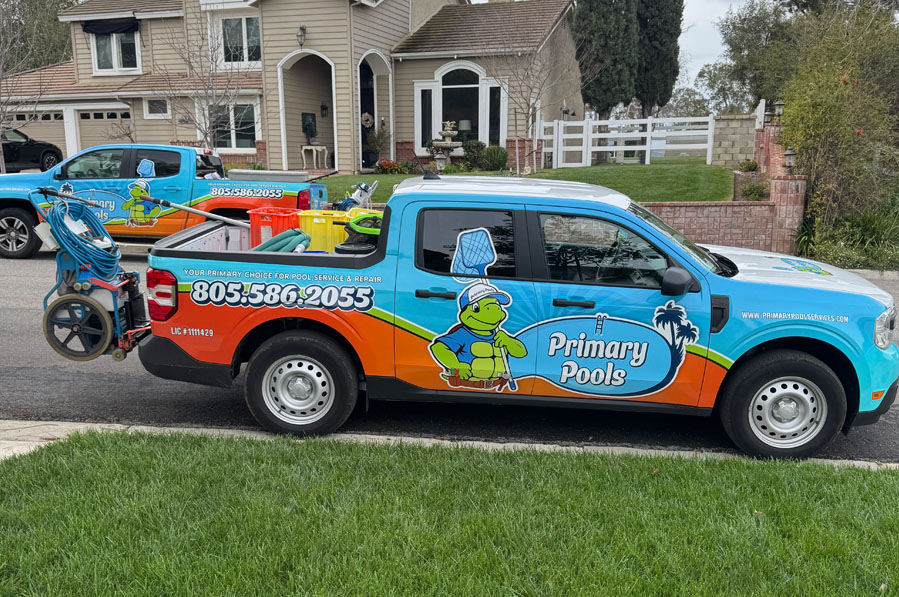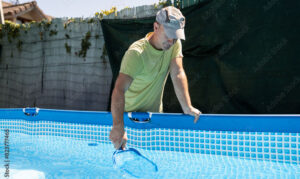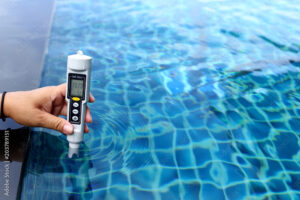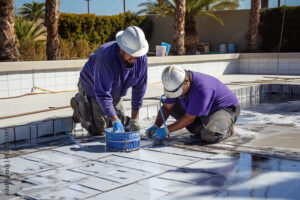A clean pool isn’t just about how it looks. It’s about keeping the water safe, the system running right, and avoiding those “how did this get so bad” problems that show up when nobody’s looking.
Whether you’ve got a plaster pool in Camarillo or a saltwater setup in Thousand Oaks, the way your pool is cleaned every week makes a difference. In how it runs. In how long it lasts. In how much it costs you long-term.
Here’s what a professional pool cleaning service actually includes — and what most people don’t realize until something breaks or turns green.
What a Real Pool Cleaning Service Covers — Weekly and Without Excuses
A real weekly pool service isn’t just about keeping things tidy — it’s about making sure everything’s running right. If any of these steps are skipped, problems aren’t far behind.
Skim the surface. Get the leaves, bugs, and junk off the top before it clogs up your system.
Brush the walls. Algae doesn’t need much to get started. We scrub tiles, steps, and anywhere buildup likes to hide.
Vacuum the floor. If it sinks, it settles. We clean the bottom manually or with a vac, depending on the pool.
Empty the baskets. Skimmer and pump baskets fill fast — especially in windy spots. We clear them every visit.
Check the water. We test chlorine, pH, alkalinity, calcium, stabilizer, and TDS — and adjust on the spot.
Balance the chemistry. Too much or too little of anything? You’ll feel it in your eyes, your plaster, or your wallet.
Watch the filter pressure. High PSI? Time to backwash or clean the cartridge. Low PSI? Could mean a leak or suction issue.
Inspect the gear. Pumps, lids, valves, O-rings — we know what to look for and what fails first.
Skip any of this, and you’re just babysitting the pool. We’re here to run it right — every time.
The Chemistry Behind Balanced Water, And Why It Changes Fast.
In Ventura County, UV exposure, bather load, windborne debris, and hard tap water all work against you. Maintaining water balance is not a one-and-done deal.
- Free chlorine sanitizes but burns off quickly in sunlight if stabilizer is too low.
- High pH reduces chlorine effectiveness and promotes scale on tile and heaters.
- Low alkalinity creates pH drift, leading to plaster damage and corrosion.
- High calcium leads to scaling on tile lines, returns, and inside your salt cell.
- Low calcium pulls minerals from plaster, weakening surfaces over time.
A pool professional reads trends in your chemistry over weeks and seasons. They don’t just “balance it today” — they predict where it’s going.
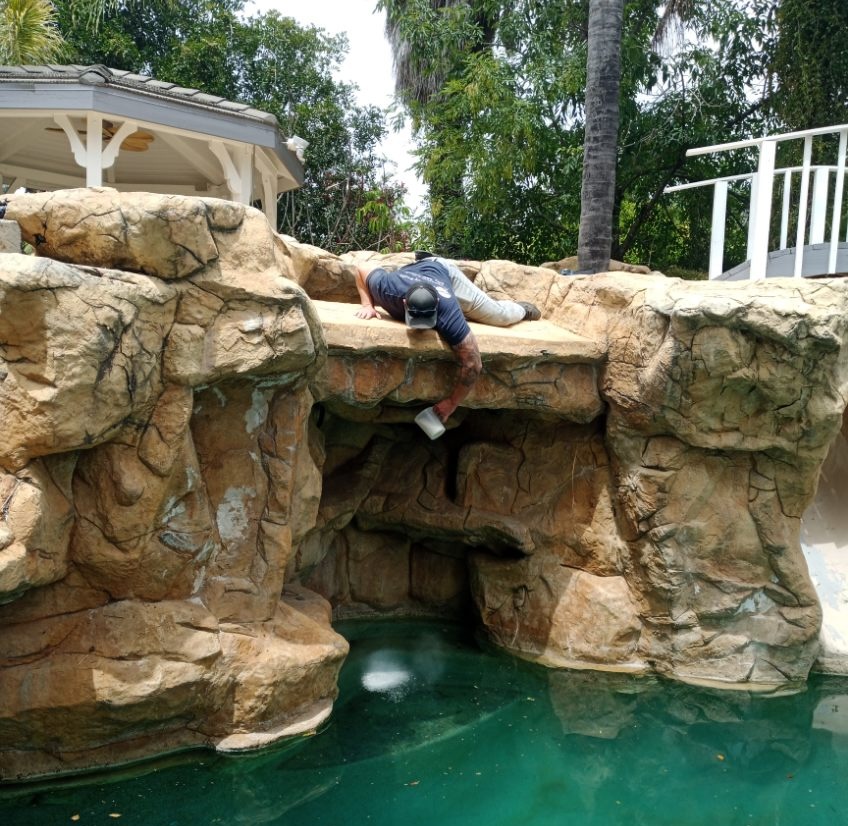
Filter Pressure Is a Diagnostic Tool, Not a Guess.
Every filtration system (sand, DE, or cartridge) has an ideal operating pressure range. If your pool tech isn’t recording and reacting to PSI changes, small issues snowball.
- High pressure means the filter is clogged, the return is blocked, or the multiport is failing.
- Low pressure may indicate suction leaks, low water levels, or cavitation at the pump impeller.
Ignoring filter pressure is like ignoring a warning light on your dashboard — the damage is still happening whether you see it or not.
Why Pool Cleaning Is Also Equipment Maintenance.
Weekly service isn’t just about water. Pumps, heaters, filters, chlorinators, timers, automation systems, and valves all require regular visual checks. Early signs of wear include:
- Leaks around the pump housing.
- Air bubbles in the return (suction side leak).
- Water under the heater manifold.
- Calcium buildup around fittings.
- Intermittent timer failures.
Techs should notify you of issues before they become emergencies. That’s the value of eyes-on-site every week.
Decks, Drains, and Details — The Overlooked Parts of “Cleaning.”
Clean pools start with clean surroundings. A real service also includes:
- Brushing debris off coping and deck edges.
- Clearing deck drains and overflow troughs.
- Checking autofill functionality.
- Monitoring water level fluctuations.
These small touches prevent debris from entering the pool and help diagnose evaporation or leaks.
What Low-Cost Services Skip (And Why It Costs You Later.)
Budget pool cleaners often cut corners to keep pricing low. Here’s what they typically skip:
- Accurate water testing (guesswork instead of calibrated test kits.)
- Adjusting all five major chemistry factors (some just handle chlorine and pH.)
- Brushing (especially tile lines or pebble finishes.)
- Filter monitoring or cleaning.
- System checks.
- Communication.
You won’t notice right away, until algae blooms, your heater fails, or your pool turns cloudy before an event.
The Bottom Line.
A professional pool cleaning service protects your investment, extends the life of your equipment, and ensures the water’s safe for your family and guests. It’s not just maintenance — it’s weekly prevention that saves you from mid-season disasters.
If your current service isn’t brushing, testing, balancing, inspecting, and reporting, it’s not real maintenance. It’s reactionary damage control.
Choose a service that treats your pool like the long-term asset it is.
Whether you’ve got a standard backyard pool, a high-end plaster beauty, or you manage a commercial property with guests depending on you, Primary Pool Services is ready to take over and elevate your water game.
You didn’t build a pool to stress about pH, filters, or surprise algae. That’s our job.
Call (805) 586-2055 and let Primary Pool Services handle the hard part, so you can enjoy the pool the way it was meant to be.
